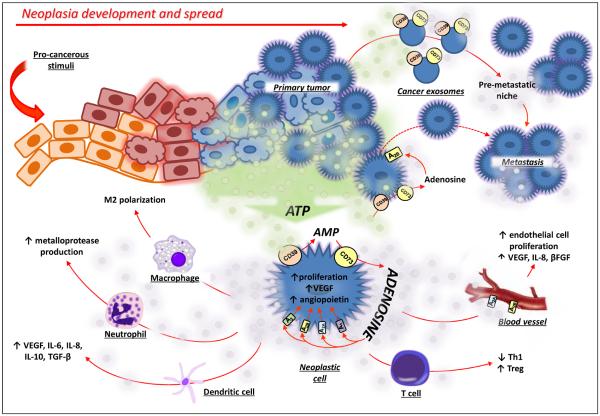Figure 3.
The CD39/CD73 axis in neoplastic development and progression. Within the tumor environment, ATP is released and is converted into adenosine by upregulated CD39 and CD73. Adenosine promotes cancer growth by acting directly on neoplastic cells through A1, A2A, A2B, and/or A3 adenosine receptor activation and by subsequent enhancement of invasiveness and metastatic ability. The engagement of A2A and A2B receptors on endothelial cells enhances the production of pro-angiogenic factors (β-FGF, VEGF and IL-8). In addition, the adenosine generated by CD39/CD73 expressed either on primary neoplastic cells or on cancer exosomes generates an immunosuppressive environment by acting on macrophages, neutrophils, dendritic cells and T cells.
Abbreviations: IL-6, interleukin-6; IL-8, interleukin-8; IL-10, interleukin-10; VEGF, vascular endothelial growth factor; β-FGF, fibroblast growth

